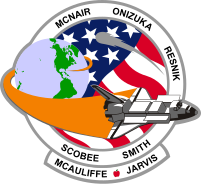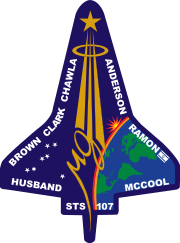Remembering Apollo 1 and Challenger

Each year in the last week of January we mark the loss of 10 NASA astronauts to tragedy. One accident occurred on land on January 27, 1967, when a training capsule was engulfed in fire and killed three astronauts. The other happened on January 28, 1986 on the edge of space when space shuttle Challenger exploded, killing seven astronauts.
On January 27, 1967, Apollo astronauts Gus Grissom, Ed White, and Roger Chaffee were taking part in a pre-launch simulation when their capsule caught on fire. They were killed in the fire, and it marked the first major space tragedy on record. Other astronauts had died in flight accidents or auto mishaps, but these guys were the first to die in training. I was only a child then, but already caught up in the fever of space interest, so it was quite a shock to me that these “space gods” could die on the ground. I’d already read some science fiction where death in space was a story element, but still — this was different, and it left a mark.

On January 28, 1986, as a grown woman, I watched as the space shuttle Challenger exploded 73 seconds after launch, and that, too left a mark. Killed were Teacher-in-Space payload specialist Sharon Christa McAuliffe; payload specialist Gregory Jarvis; and astronauts Judith A. Resnik, mission specialist; Francis R. (Dick) Scobee, mission commander; Ronald E. McNair, mission specialist; Mike J. Smith, pilot; and Ellison S. Onizuka, mission specialist. I’d met some of those astronauts. I wanted to BE a shuttle astronaut (although with crappy eyesight and no Ph.D, it didn’t seem like a possibility, but hey — a lady could dream, right?
The Aftermath of Challenger
Every shuttle launch I attended after Challenger (or watched on TV), kept me holding my breath until after the 73-second mark. I never heard the words “go at throttle-up” the same way again.
In 1986, was at JPL covering the Uranus encounter (Voyager 2), and the last science press conference was scheduled for a few minutes after that launch. So, a great many scientists, reporters, NASA honchos, contractors, etc. were gathered in Von Karman auditorium to watch the launch. We were chatting, laughing, enjoying the spectacle. As soon as the first burst from the shuttle appeared, the room went dead silent. As we watched the Y appear, people began to shout and cry. I looked around and saw several people holding up one of the older scientists who was sobbing (I think it was Hal Masursky. We all joined in a huddle around him, hanging on to each other while still watching the screen.
Some time later, Jurri van der Woude, the JPL press honcho, gathered us all together and made some commentary. Among other things he pointed out that we would probably get a lot of questions from other press around the country. His advice was simple: “Tell them “no comment”.” And, it was good advice. From 3,000 miles away, we really had NO information — that was more the bailiwick of the Kennedy folks.
Not long after that, our phones (we each had one at our desks) began to ring, not just from editors and publishers, but from reporters elsewhere who figured that since we were at NASA, we must have inside info. There was nothing we could tell them as we watched the scenes unfold before us on the screens.
Needless to say, we were all stunned, but all of us had jobs to do. So, we wrote our stories, and then a day or so later, we had the final Uranus results from still visibly stunned scientists.
I will never forget that day — it still seems fresh. Each tragedy has been investigated, and we learn more from each one to make tomorrow’s flights safer.
Today, I’ll spend my own few moments of silence for that loss. I had spent time interviewing some of the potential Teachers in Space. When they asked if any of us would still go to space after that incident, I said, unhesitatingly, “Yes!” just as enthusiastically as they did.
As Gus Grissom once said, “The conquest of space is worth the risk of life.” They knew that. And we knew that.




